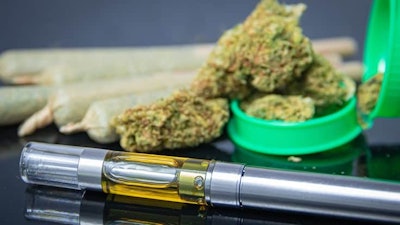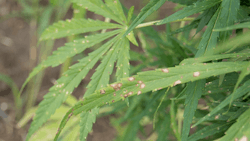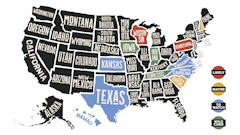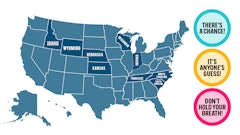
Indiana University researchers have presented data that suggest cases of electronic cigarette or vaping-associated lung injury (EVALI) are more prevalent in states that do not have adult-use dispensaries.
The study was published in JAMA: The Journal of the American Medical Association on April 6 by researchers from Indiana University’s School of Medicine and O’Neill School of Public and Environmental Affairs. It is titled “Association of State Marijuana Legalization Policies for Medical and Recreational Use With Vaping-Associated Lung Disease.”
“The data suggest that EVALI cases were concentrated in states where consumers do not have legal access to recreational marijuana dispensaries,” the study reads. “This association was not driven by state-level differences in e-cigarette use, and EVALI case rates were not associated with state-level prevalence of e-cigarette use. One possible inference from our results is that the presence of legal markets for marijuana has helped mitigate or may be protective against EVALI.”
The researchers analyzed data from all 50 states and Washington, D.C. This included data on reported EVALI cases from 2019 from the Centers for Disease Control and Prevention (CDC); population data from 2017 from the Surveillance, Epidemiology, and End Results database; and estimates of e-cigarette use in 2017 from the Behavioral Risk Factor Surveillance System, according to the study.
States with adult-use programs had 1.7 EVALI cases per million people, while states with medical programs had 8.8 cases per million and states with prohibition in full effect had 8.1 cases per million, according to the study.
The study also asserts the following: “A test of the difference in mean case rates implies that recreational marijuana states have 7.1 … fewer cases per million than medical marijuana states … and 6.4 … fewer cases per million than prohibition states. … The difference in the EVALI case rate between medical and prohibition states was not statistically significant.”
The reason for the trends is not clear, according to the study, although it says it is possible that legal dispensaries are less likely to sell contaminated products than the black market.

























